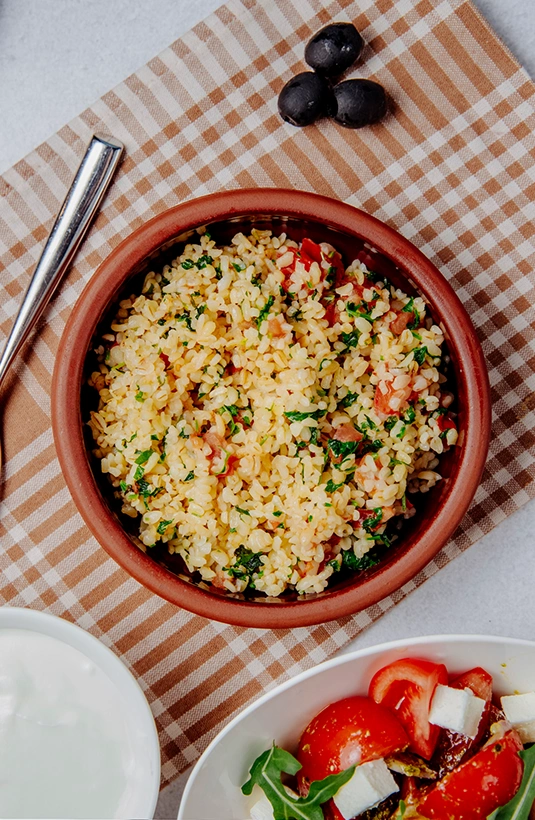

Top Health Benefits of Mediterranean Bulgur Pilaf You Need to Know
Bulgur Pilaf is a powerhouse of essential nutrients, making it an excellent choice for a balanced diet. Bulgur, the main ingredient, is rich in dietary fiber, which promotes digestive health and helps in maintaining stable blood sugar levels. It is also a good source of plant-based protein, making it a great option for vegetarians and vegans. Additionally, bulgur contains essential vitamins and minerals such as iron, magnesium, and B vitamins, which support energy production and overall well-being. The inclusion of fresh vegetables like tomatoes, bell peppers, and parsley further boosts the dish with antioxidants, vitamin C, and potassium, contributing to immune support and heart health. Moreover, cooking with olive oil adds healthy monounsaturated fats, which help reduce inflammation and support brain function. This dish is naturally low in calories and provides sustained energy, making it an excellent alternative to white rice or refined grains.
Recipe :
For 4 people
Enjoy your delicious Bulgur Pilaf!
To achieve the perfect texture and flavor in Bulgur Pilaf, it's crucial to follow a few essential steps. First, always rinse the bulgur thoroughly before cooking to remove excess starch and ensure a light, fluffy texture. When sautéing the onions and vegetables, cook them until they are soft and fragrant to enhance the overall taste of the dish. Adding tomato paste and allowing it to cook for a minute before adding liquid will deepen the flavor and eliminate any raw taste. The liquid ratio is another key factor—using too much water can make the pilaf mushy, while too little can result in undercooked grains. It's best to let the bulgur absorb the liquid on low heat without stirring too much to maintain its structure. Once cooked, let the pilaf rest for a few minutes before fluffing it with a fork, which helps separate the grains and improves the texture. Lastly, using fresh herbs like parsley at the end of cooking enhances the dish's freshness and nutritional value.

Bulgur Pilaf is highly versatile and fits well into several dietary plans. It is an ideal dish for the Mediterranean diet, as it incorporates whole grains, healthy fats, and fresh vegetables. It is also suitable for vegetarian and vegan diets if prepared with vegetable broth or water instead of chicken broth. Those following a low-calorie or DASH diet can enjoy this dish as a nutritious and filling meal that supports weight management and heart health. However, it is not suitable for a ketogenic diet due to its high carbohydrate content, nor is it appropriate for a paleo diet, which excludes grains. Additionally, since bulgur is derived from wheat, this dish is not gluten-free and should be avoided by individuals with celiac disease or gluten intolerance. If you're looking for a gluten-free alternative, quinoa or cauliflower rice can be substituted to maintain a similar texture while adhering to dietary restrictions.
...